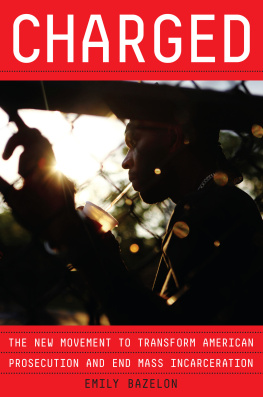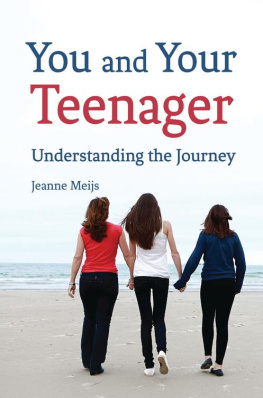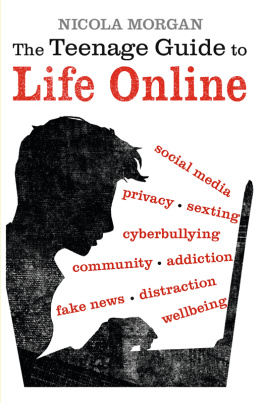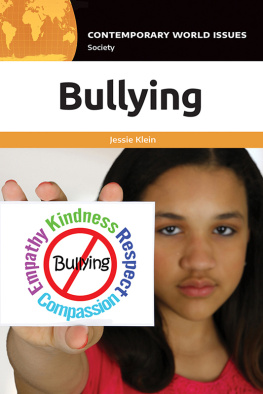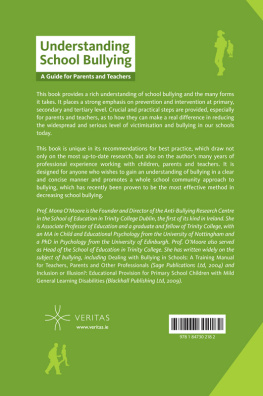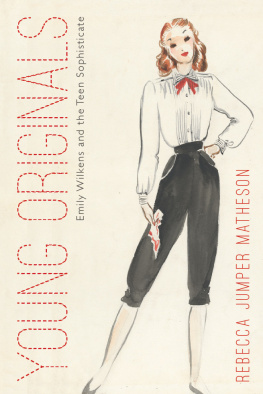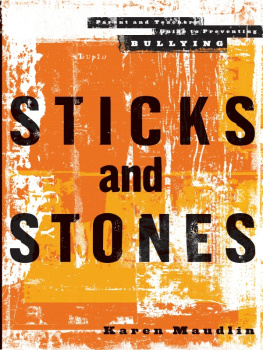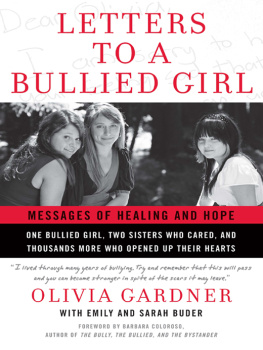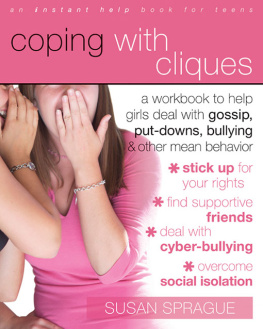Emily Bazelon - Sticks and Stones: Defeating the Culture of Bullying and Rediscovering the Power of Character and Empathy
Here you can read online Emily Bazelon - Sticks and Stones: Defeating the Culture of Bullying and Rediscovering the Power of Character and Empathy full text of the book (entire story) in english for free. Download pdf and epub, get meaning, cover and reviews about this ebook. year: 2013, publisher: Random House, genre: Home and family. Description of the work, (preface) as well as reviews are available. Best literature library LitArk.com created for fans of good reading and offers a wide selection of genres:
Romance novel
Science fiction
Adventure
Detective
Science
History
Home and family
Prose
Art
Politics
Computer
Non-fiction
Religion
Business
Children
Humor
Choose a favorite category and find really read worthwhile books. Enjoy immersion in the world of imagination, feel the emotions of the characters or learn something new for yourself, make an fascinating discovery.

- Book:Sticks and Stones: Defeating the Culture of Bullying and Rediscovering the Power of Character and Empathy
- Author:
- Publisher:Random House
- Genre:
- Year:2013
- Rating:4 / 5
- Favourites:Add to favourites
- Your mark:
Sticks and Stones: Defeating the Culture of Bullying and Rediscovering the Power of Character and Empathy: summary, description and annotation
We offer to read an annotation, description, summary or preface (depends on what the author of the book "Sticks and Stones: Defeating the Culture of Bullying and Rediscovering the Power of Character and Empathy" wrote himself). If you haven't found the necessary information about the book — write in the comments, we will try to find it.
Being a teenager has never been easy, but in recent years, with the rise of the Internet and social media, it has become exponentially more challenging. Bullying, once thought of as the province of queen bees and goons, has taken on new, complex, and insidious forms, as parents and educators know all too well.
No writer is better poised to explore this territory than Emily Bazelon, who has established herself as a leading voice on the social and legal aspects of teenage drama. In Sticks and Stones, she brings readers on a deeply researched, clear-eyed journey into the ever-shifting landscape of teenage meanness and its sometimes devastating consequences. The result is an indispensable book that takes us from school cafeterias to courtrooms to the offices of Facebook, the website where so much teenage life, good and bad, now unfolds.
Along the way, Bazelon defines what bullying is and, just as important, what it is not. She explores when intervention is essential and when kids should be given the freedom to fend for themselves. She also dispels persistent myths: that girls bully more than boys, that online and in-person bullying are entirely distinct, that bullying is a common cause of suicide, and that harsh criminal penalties are an effective deterrent. Above all, she believes that to deal with the problem, we must first understand it.
Blending keen journalistic and narrative skills, Bazelon explores different facets of bullying through the stories of three young people who found themselves caught in the thick of it. Thirteen-year-old Monique endured months of harassment and exclusion before her mother finally pulled her out of school. Jacob was threatened and physically attacked over his sexuality in eighth gradeand then sued to protect himself and change the culture of his school. Flannery was one of six teens who faced criminal charges after a fellow students suicide was blamed on bullying and made international headlines. With grace and authority, Bazelon chronicles how these kids predicaments escalated, to no ones benefit, into community-wide wars. Cutting through the noise, misinformation, and sensationalism, she takes us into schools that have succeeded in reducing bullying and examines their successful strategies. The result is a groundbreaking book that will help parents, educators, and teens themselves better understand what kids are going through today and what can be done to help them through it.
Praise for Sticks and Stones
Intelligent, rigorous . . . [Emily Bazelon] is a compassionate champion for justice in the domain of childhoods essential unfairness.Andrew Solomon, The New York Times Book Review
[Bazelon] does not stint on the psychological literature, but the result never feels dense with studies; its immersive storytelling with a sturdy base of science underneath, and draws its authority and power from both.New York
A humane and closely reported exploration of the way that hurtful power relationships play out in the contemporary public-school setting . . . As a parent herself, [Bazelon] brings clear, kind analysis to complex and upsetting circumstances.The Wall Street Journal
Bullying isnt new. But our attempts to respond to it are, as Bazelon explains in her richly detailed, thought-provoking book. . . . Comprehensive in her reporting and balanced in her conclusions, Bazelon extracts from these stories useful lessons for young people, parents and principals alike.The Washington Post
Emily Bazelon: author's other books
Who wrote Sticks and Stones: Defeating the Culture of Bullying and Rediscovering the Power of Character and Empathy? Find out the surname, the name of the author of the book and a list of all author's works by series.

